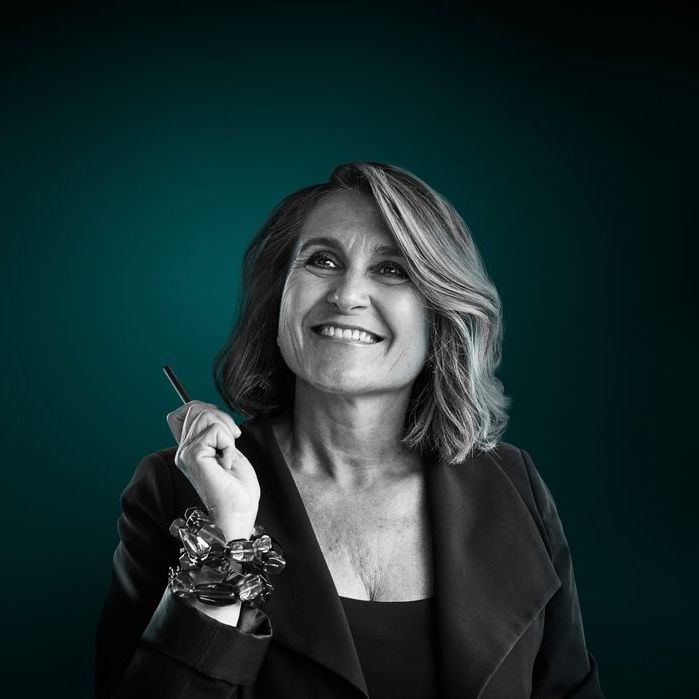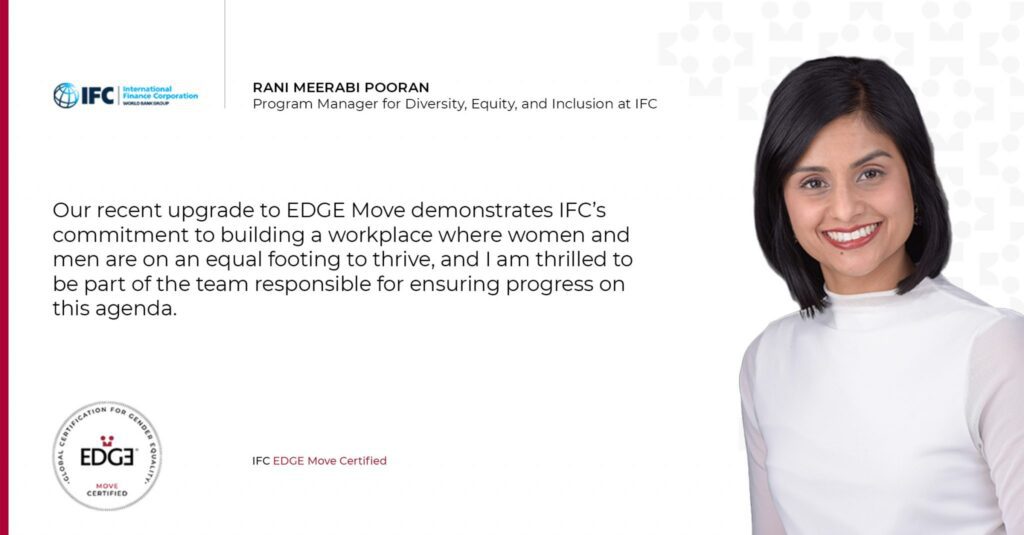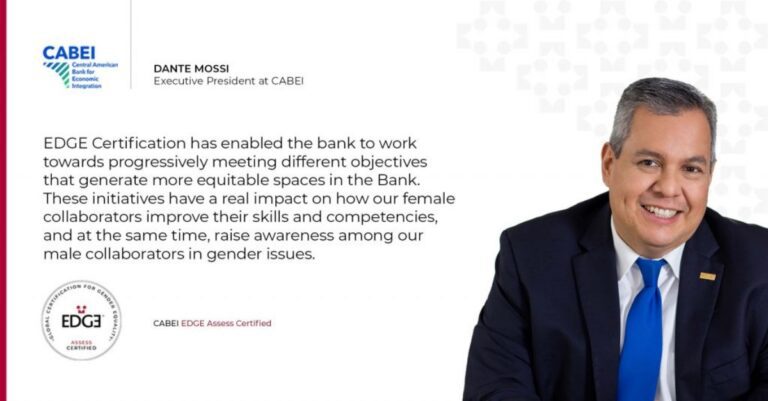
Author: Simona Scarpaleggia
Board Member, EDGE Strategy
Switzerland has always been a benchmark country. When it comes to innovation, competitiveness, democracy, wealth and happiness, Switzerland leads where others follow. This is true also in terms of new cultural and economic imperatives, showing leadership in the critical areas of sustainability and digitalization.
Where Switzerland has previously lagged behind, however, is in the area of Gender Equality. For a country that only gave women the vote in 1971, perhaps that’s not surprising, and progress since then has been painfully slow. But in recent years, this has been changing, and Switzerland is potentially on the cusp of greatness.
But can Switzerland go further? Can it, in fact, become the benchmark country not only in Europe but also the world when it comes to gender equality?
Government initiatives
The infamous women’s strike of 2019 moved the conscience of authority and led to a series of Government initiatives to advance Gender Equality and improve the position of women based around four key pillars: health; education; political participation; and economic participation. In the first three of these pillars, the Swiss authorities have managed to move the needle on the dial significantly.
The facts speak for themselves: when I first came here 12 years ago as CEO of IKEA Switzerland, the country was ranked 27th in the World Economic Forum’s Gender Gap report. By 2019, it had climbed to 18th. Today it is in the top ten, a remarkable achievement in such a short space of time – and progress of which the Swiss authorities can be justifiably proud. But can Switzerland go further? Can it, in fact, become the benchmark country not only in Europe but also the world when it comes to Gender Equality?
The ambition is perhaps not as fanciful as it seems. When you look at other countries, and explore the conditions required to achieve world-leading Gender Equality (resources, infrastructure and demographics) Switzerland is very well placed. In financial terms, and in terms of people’s competence and skills at all levels, Switzerland has the human capital to accelerate progress. It has equally well-educated men and women; indeed, there are now more women with degrees than men. In terms of infrastructure, Switzerland is very well connected globally, and can boast many world-leading, innovative businesses, especially across pharma and digital. And when it comes to demographics, Switzerland is at the point of significant demographic change.
Over the course of this decade, 1.1 million of the baby boomer generation will reach retirement age, resulting in more than 800,000 leaving employment. At the same time, the number of 20 to 25-year-olds joining the labour market will fall over the course of the next 10 years, presenting a huge opportunity for a well-educated female workforce.
In financial terms, and in terms of people’s competence and skills at all levels, Switzerland has the human capital to accelerate progress.
Overcoming challenges
But while the conditions to reach Gender Equality are positive, there are still a number of challenges to be overcome, not least culturally. Men are still conditioned by role models that require them to work full time and leave the ‘softer’ more ‘caring’ role in the family to their partners. Women, on the other hand, are similarly conditioned to be modest and not over-ambitious, and to fulfil their role as the principal carers, homemakers and mothers.
Organizations, the Government and the local Cantons, perhaps unintentionally, perpetuate this thinking: companies tend to have very rigid working rules and practices, and there are laws relating to families and properties that are arguably obsolete. In the tax system for example, the lower-earning member of a married couple – typically the woman – is taxed at the same rate as the higher-earning member. This outdated model effectively removes the incentive for women to work more than part-time hours – and the economic advantage that comes from maintaining their careers. It also means they have even less money to contribute to essentials, such as paying for childcare, effectively creating a vicious cycle from which there appears no escape.
So what needs to change? Creating greater work flexibility and more parent-friendly policies would certainly help. Childcare, for example, is notoriously expensive, and a cheaper childcare system could make a significant difference. Re-examining the school system, and school hours especially, would also enable women to take on permanent rather than temporary work – something that is not practical today without creating childcare issues.
Introducing more generous parental leave for fathers, to allow them to take a greater role in family life and the day-to-day care of their children would also help, as would a change to the tax system so that working mothers are not unfairly penalized for having a career (indeed, how much higher would the country’s tax receipts be if the percentage of working mothers increased?).
Cultural change
But the biggest change required is cultural. Whereas there are undoubtedly some parts of the country that recognize the value of a more equal society – especially in the larger cities of Zurich, Geneva and Berne – others are yet to be convinced. There are still pockets of resistance to change, and that is reflected in the most recent figures from the Federal Office for Statistics (March 2022) showing that women earn on average 11% less than men for doing the same job in Switzerland. While the gender gap is narrowing, it is still stubbornly more pronounced in the higher earning strata of the workforce where female managers earn 16.8% less than their male counterparts.
Other countries of (respectfully) far less standing in the world are already further ahead in their gender equality thinking and progress than Switzerland: Nicaragua and Ruanda, for example, warrant special mention and yet have few of the advantages that Switzerland currently enjoys. Which is why I am so optimistic that Switzerland can be the benchmark country for Gender Equality in the future, and why I am equally passionate about giving organizations the tools, the measurement, and the action plan through EDGE certification that they need to jump the final hurdle. Because there are no short-cuts to achieving Gender Equality and everyone must contribute: governments, organizations, and individuals.
Switzerland has the conditions required to be a world leader.
Growing momentum
Momentum is growing and this is being supported by influential sections of our society. Ringier’s EqualVoice and Equalvoice United initiatives, for example, which are bringing together the Swiss media to tackle representation of women, as well as major Swiss companies who have this year committed to promote equality and inclusion within their own workforce, establish modern working practices and communicate the benefits to other businesses and wider society.
But there also needs to be policy change. Rules that are currently there for guidance need to become mandatory, and laws – some of which have been in place since 1996 – need to be fully implemented. Whereas it is mandatory for private businesses with more than 100 employees to report on salary levels every four years, this needs to be extended to a wider tranche of businesses and more frequent reporting, and faster progress needs to be made in public sector organizations. The Swiss Government’s National Strategy for Gender Equality seeks to achieve Gender Equality by 2030; I believe we can get there more quickly.
A more gender equal society, one that gives equal voice to men and women, delivers an improved distribution of wealth, reduces social tensions, and unleashes the potential of women, thus taking further steps towards excellence. Switzerland has the conditions required to be a world leader, and I have every confidence it will get there.















